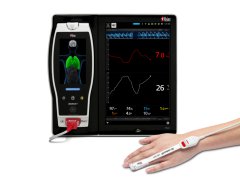The collaboration will produce a comprehensive clinical research program in major depressive disorder and schizophrenia, building upon Boehringer Ingelheim’s circuitry-based approach to precision psychiatry and further solidifies commitment to provide better treatments for people living with serious mental health conditions.
Together, Boehringer Ingelheim and King’s College London aim to identify more patient-specific biomarkers, improving the development of therapies for cognitive impairment.
INGELHEIM, Germany & LONDON--(BUSINESS WIRE)--Boehringer Ingelheim and the Institute of Psychiatry, Psychology & Neuroscience (IoPPN) at King’s College London today announced a new collaboration focused on understanding the malfunctions in brain circuits that drive impaired cognition in people with major depressive disorder (MDD) and schizophrenia (SZ). The study will aim to connect individual symptoms to specific brain-circuit dysfunctions, and will inform the development of novel therapies that target the underlying neurobiological processes of individual behavioral traits.
“We are delighted to collaborate with King’s IoPPN, a leading institute for research in psychiatry”, said Dr Vikas Mohan Sharma, Head of Medicine CNS, Retinopathies & Emerging Areas at Boehringer Ingelheim. “This collaboration will advance our understanding to better assess cognition and those biomarkers linked to cognitive deterioration in people with major depressive disorder and schizophrenia. We look forward to jointly creating opportunities to accelerate future clinical trials and the development of treatments for the many people impacted by psychiatric disorders.”
The partners plan to conduct four clinical studies to assess the behaviors of people with MDD and SZ in their home environments as well as during their study center visits where the activation of brain circuits triggered by cognitive tasks will be mapped. The unique study design includes, beyond standard clinical assessments, a battery of cognitive tasks, functional magnetic resonance imaging (fMRI), electroencephalography (EEG), polysomnography, patient functioning assessment through virtual reality tools and digital biomarkers to monitor speech and sleep habits.
“King’s College London has a long-standing focus on advancing the understanding of brain circuits responsible for cognition deficits in both psychiatric and neurological disorders,” said Professor Steven Williams, project lead and Head of Department of Neuroimaging at King’s IoPPN. “Working with Boehringer Ingelheim, a research-driven company with vast experience in central nervous system drug discovery and clinical development, will allow us to enlist their expertise in clinical study design, enable new therapeutic concepts and better clinical trials of individual patient populations.”
Neuropsychiatric disorders affect hundreds of millions of people worldwide and can impact people’s health and their ability to learn and work. Cognition is a fundamental aspect of everyday life, including problem-solving, memory and attention. When affected, people living with poor cognition can have a reduced mental ability to process information, remember straightforward things or perceive other people’s emotions and expressions. These malfunctions are common across many forms of mental disorders. Although antipsychotic medications have evolved in the 1990s since their introduction, treatment options have otherwise remained mostly unchanged. This is at least partly due to the lack of breakthrough therapies to treat severe mental health issues. Finding solutions for cognitive impairment is a key area of Boehringer Ingelheim’s innovative mental health research. The company has built a comprehensive development program in this area including two ongoing phase II trials and a recent first-of-its-kind phase III start for its novel glycine transporter-1 (GlyT1) inhibitor. The clinical study of GlyT1 is an example for the potential development of new therapeutic concepts based on better understanding of which brain circuits are relevant for cognitive impairment associated with schizophrenia.
Boehringer Ingelheim’s Intended Audiences Notice
This press release is issued from our Corporate Headquarters in Ingelheim, Germany and is intended to provide information about our global business. Please be aware that information relating to the approval status and labels of approved products may vary from country to country, and a country-specific press release on this topic may have been issued in the countries where we do business.
Please click on the following link for ‘Notes to Editors’ and ‘References’:
http://www.boehringer-ingelheim.com/press-release/collaboration-kings-college-london







